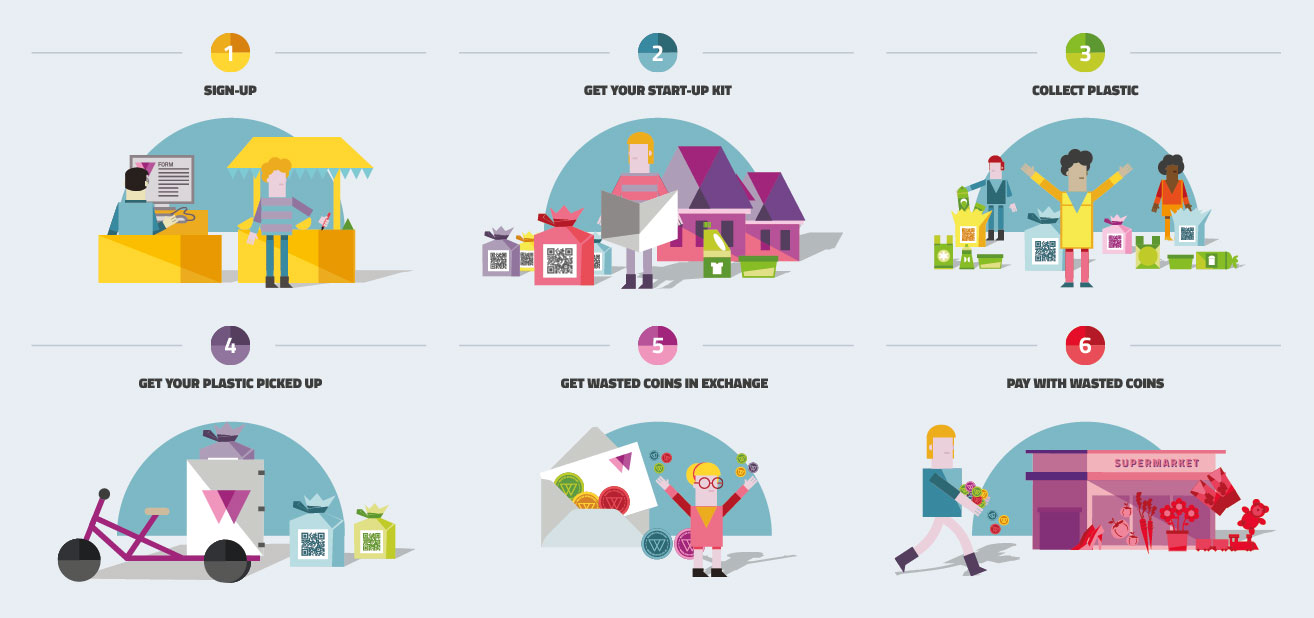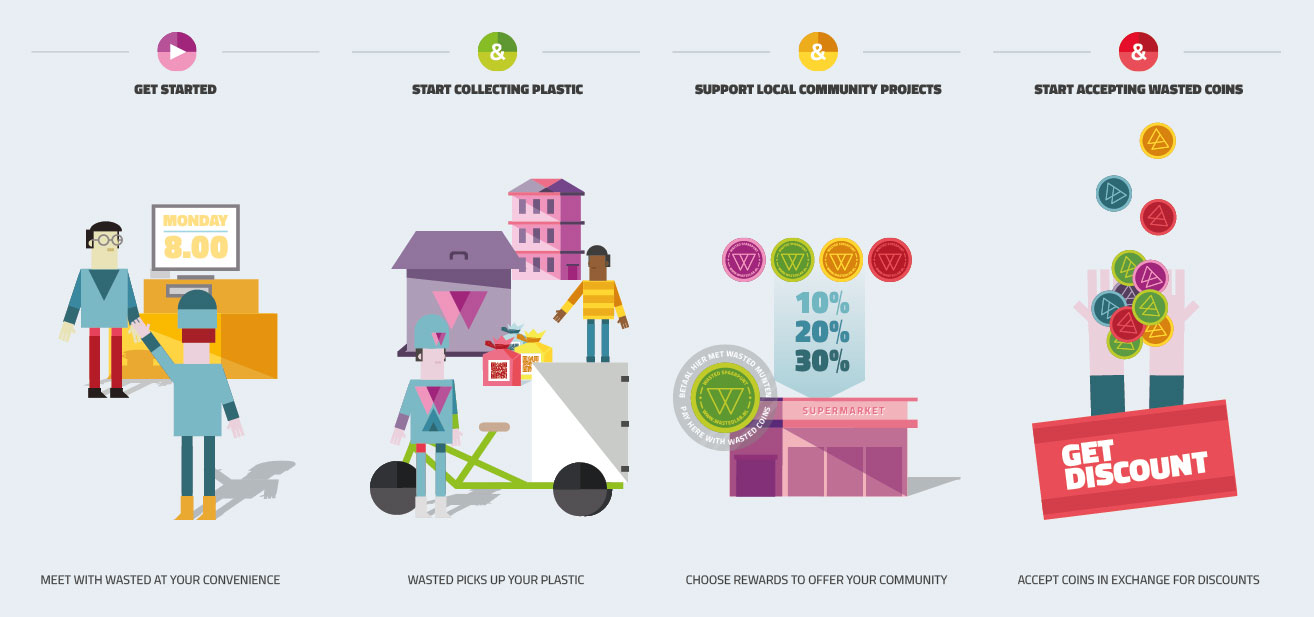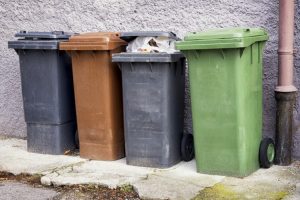February 28th 2017
Panda Waste Management’s announcement that they are to attach a surveillance camera to its rubbish trucks as a way of identifying households guilty of dumping general waste in their recycling bin has been met with mixed reviews. The pilot scheme will take place in Finglas and will monitor the dumping activities of 12,000 households. Those found to be illegally dumping on a consistent basis may face fines and prosecution.
Some feel the move is necessary to stop people taking advantage of the free recycling bin and negatively affecting the environment. However, others feel it is an invasion of privacy and the concept would be better suited as a fantastical footnote in George Orwell’s dystopian novel, 1984.
Ireland isn’t the only country to think outside the box when it comes to dealing with waste management. Other countries have come up with innovative ways to promote recycling that might be considered a little bit less draconian than CCTV coverage of waste collecting.
Amsterdam, The Netherlands. Green Coins Initiative.
One thing springs to mind when somebody thinks of Amsterdam………………..Bicycles.
Amsterdam is a  bicycle-loving metropolis. Around 60% of trips around the inner city are done on a bike, making its claim to be an environmentally-friendly capital substantial. Their Green Coin Initiative further bolsters that assertion.
bicycle-loving metropolis. Around 60% of trips around the inner city are done on a bike, making its claim to be an environmentally-friendly capital substantial. Their Green Coin Initiative further bolsters that assertion.
Starting off as a pilot project in Amsterdam’s Noord District, residents are rewarded for recycling their plastic items with green coins. These green coins can then be used as currency in a variety of local businesses. Wasted, the company responsible for managing the scheme, see it as a way for residents to turn their “trash into treasure.”
Businesses, communities and individuals can avail of the scheme. A person or household signs up to the scheme and receives specially-designed refuse bags. The bags are filled with plastic and returned to Wasted. Customers receive a number of green coins depending on the amount of bags they fill.

Businesses and community groups have their plastic picked up by Wasted. In exchange, they accept green coins from participating customers as currency for their goods or services.
Green Coin customers can avail of a number of goods and services varying from bike repair and yoga lessons with a flexible discount to free coffee and cheap grocery shopping. There are plans to make the currency digital this year.
The plastic collected by the company is used as their laboratory’s main input. It is then used for a number of purposes from reusable building blocks and furniture to stands at local markets and playground equipment.
Neustadt an der Weinstrasse, Germany. Recycle your Pet.
Germany prides itself on its recycling efficiency. Their Green Dot scheme, for example, deters retailers from using a lot of plastic by charging a higher tax on products with a lot of plastic packaging. Their garbage organising and collection system is one of the best in the world, with a variety of colour-coded bins supplied to households so that they can dispose of their trash in an environmentally-friendly manner.
Organizing and dividing out your trash into different bins and visiting the relevant recycling facilities might be something of a pet hate for many people. However, Germany has brought the practice to a whole new level with there even being a recycling bin for your beloved but regrettably deceased pet.
Residents of the unpronounceable Neustadt an der Weinstrasse are keen recyclers with 70% of the town’s waste being recycled.
It even has a rendering plant that accepts dead animals from former owners. The animals can then be reincarnated as lip balm or as similar cosmetic-based products. In Germany, it’s illegal to bury your pet in a public place.
Germany’s animal recycling scheme isn’t unique. Bart Jansen and Arjen Beltman from The Netherlands collect animal carcasses and turn dead pets into drones. As a form of recycling however, that idea hasn’t quite taken off yet.
[embedded content]
Tokyo, Japan. Turning Wasteland into Grassland.
Great debate surrounds the claim that all the trash dumped in the ocean has caused an island of garbage. Many now feel it’s more of a plastic soup. Tokyo have embraced the idea and conception of a garbage island. But it’s not as bad as it sounds.
Tokyo faced a major refuse crisis in the 1960s and 70s with the city becoming suffocated by the amount of waste it was producing. A “war on garbage” began in earnest that embedded a strong and lasting feeling of environmental responsibility on Tokyo’s citizens. Despite having a population of over 13 million people, Tokyo is relatively litter-free.
Their recycling laws are meticulous and stringent. The Tokyo Metropolitan Environmental Master Plan was formulated in 2008 with the aim of realizing an advanced environmental city with the lowest environmental load in the world. Authorities are concerned with how best to reuse and recycle waste. With this in mind, they’ve set out to build an island.
The New Surface Disposal Site caters for all the leftover trash from Tokyo’s 23 districts. Ash from incinerated trash, compacted items and sewage sludge are combined to make the artificial island a reality. Real soil acts as icing on this proverbial cake, covering up the waste material.
Plans are afoot to turn this urban wasteland into a bathing area, a terminal for shipping containers, a green space with leisure facilities and a wonderful rolling park with a hilltop offering a wonderful view of the city’s waterfront.
This idea isn’t a new one but the level of foresight and care taken by Japan throughout the process deserves commendation. They make every effort to ensure that byproducts and exhaust fumes are regulated and kept to a minimum, with the best available techniques carried out to reduce the emission of dioxins.
Japan has continually lead the way on zero waste and recycling initiatives.
They are turning old phones into Olympic medals for when they host the event in 2020 and the Japanese town of Kamikatsu hopes to become a zero waste town by the same year.
[embedded content]
Over to You.
Know of any similar recycling innovations from around the globe? Drop your ideas and experiences into the comments section below.













